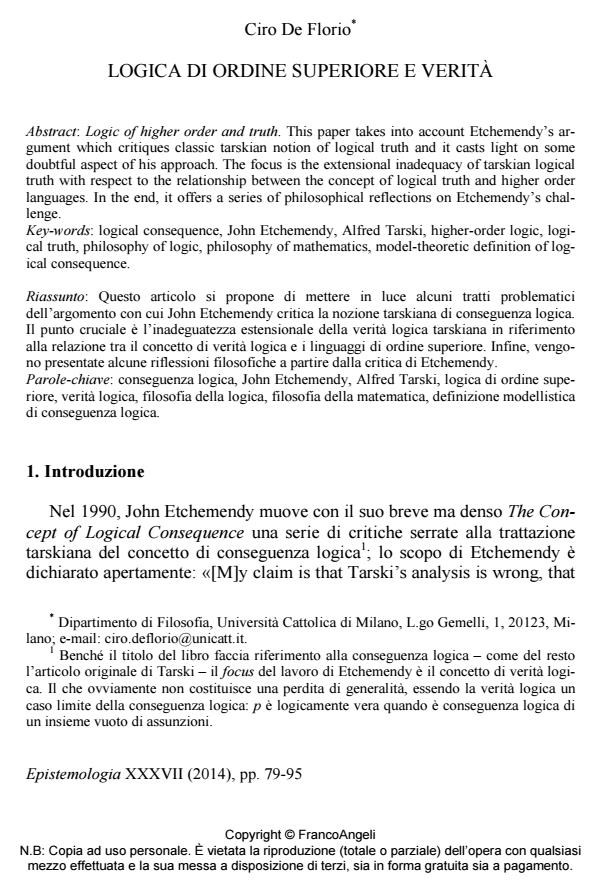Logica di ordine superiore e verità
Journal title EPISTEMOLOGIA
Author/s Ciro De Florio
Publishing Year 2014 Issue 2014/1
Language Italian Pages 17 P. 79-95 File size 633 KB
DOI 10.3280/EPIS2014-001005
DOI is like a bar code for intellectual property: to have more infomation
click here
Below, you can see the article first page
If you want to buy this article in PDF format, you can do it, following the instructions to buy download credits

FrancoAngeli is member of Publishers International Linking Association, Inc (PILA), a not-for-profit association which run the CrossRef service enabling links to and from online scholarly content.
Logic of higher order and truth. This paper takes into account Etchemendy’s argument which critiques classic tarskian notion of logical truth and it casts light on some doubtful aspect of his approach. The focus is the extensional inadequacy of tarskian logical truth with respect to the relationship between the concept of logical truth and higher order languages. In the end, it offers a series of philosophical reflections on Etchemendy’s challenge.
Questo articolo si propone di mettere in luce alcuni tratti problematici dell’argomento con cui John Etchemendy critica la nozione tarskiana di conseguenza logica. Il punto cruciale è l’inadeguatezza estensionale della verità logica tarskiana in riferimento alla relazione tra il concetto di verità logica e i linguaggi di ordine superiore. Infine, vengono presentate alcune riflessioni filosofiche a partire dalla critica di Etchemendy.
Keywords: Logical consequence, John Etchemendy, Alfred Tarski, higher-order logic, logical truth, philosophy of logic, philosophy of mathematics, model-theoretic definition of logical consequence.
Ciro De Florio, Logica di ordine superiore e verità in "EPISTEMOLOGIA" 1/2014, pp 79-95, DOI: 10.3280/EPIS2014-001005